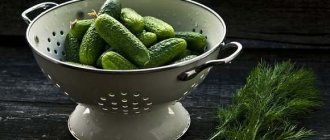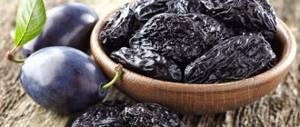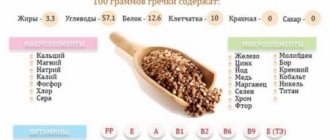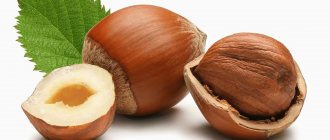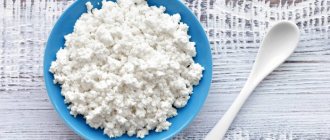Garlic is an integral part of many dishes and is included in most everyday recipes. In addition, it is one of the main means of traditional medicine. In particular, it is able to expel parasites from the body, being an excellent anthelmintic.
Garlic cloves in their original form are a source of beneficial microelements. It includes:
- B vitamins;
- essential oils;
- various minerals: from zinc to phosphorus;
- carotene.
Thanks to this combination of microelements, garlic is a universal antiviral and immunostimulating agent. Gastritis involves significant dietary restrictions and adherence to a diet during therapy. Dietary nutrition excludes hot and spicy foods to prevent further damage to the mucous membrane of the stomach and esophagus. This means that garlic and dishes containing it must be removed from the patient's diet.
However, with a mild form of the disease or during a period of remission, it is allowed to consume a minimum amount of spice in order to diversify the taste sensations: during the diet, patients are forced to eat steamed dishes. Garlic also helps normalize the mineral balance in the body.
About the beneficial properties of the plant
When it comes to the beneficial properties of garlic, the first thing that comes to mind is its antimicrobial and antiviral properties. Phytoncides, which give garlic a sharp taste and aroma, suppress pathogenic microflora.
Other beneficial properties:
- Studies have proven the positive effects of plant components on the heart and blood vessels. People who regularly eat plant slices are characterized by a good state of the circulatory system. With regular use, excess vascular tension is reduced, tone and blood pressure are normalized. The product is useful for hypertensive patients.
- Young people leading an active lifestyle strive to build muscle mass through intense physical training. This is where garlic comes to the rescue. If you eat a few slices an hour before playing sports, the plant will increase the level of the male sex hormone testosterone in the blood, increasing your own strength and endurance of skeletal muscles.
- Eating a tart vegetable with a specific taste and smell accelerates metabolic processes in the body, leads to the burning of excess fat and strengthens the immune system.
- Including a couple of cloves of the product in the diet for three months leads to a decrease in the amount of fatty acids and cholesterol in the blood, reducing the risk of atherosclerosis, heart attack and other diseases.
- Garlic contains substances that prevent the development of thrombosis and thromboembolism. The risk of stroke or heart attack is reduced.
- The product contains 400 active components.
- In folk medicine, the plant has long been used as a means for the prevention and home treatment of colds and viral diseases. Due to the content of essential oils, garlic has a pronounced antiviral and antimicrobial effect and stimulates the body's immune defense.
- Traditional and official medicine have long used the anthelmintic properties of garlic. It is possible to treat helminthiases with garlic even in children.
Garlic is a savory spice and a natural remedy. Even such a useful substance has negative aspects and a number of contraindications for use.
Negative effects of garlic on the human body
An unpleasant odor is not the worst thing that can happen after eating garlic.
It is not recommended to eat for the following diseases:
- Disruption of the gastrointestinal tract and liver, that is, with gastritis with high acidity or cholecystitis.
- Can lead to headaches, slow reaction times, and also lead to inattention.
- Excessive consumption of garlic leads to an allergic reaction.
Harmful properties of garlic
Despite the numerous beneficial properties of the vegetable, you should not get carried away with it. Excessive consumption of plants for gastritis leads to a deterioration in health.
- The vegetable fiber in garlic is difficult to digest in the stomach. With gastritis, excess load will lead to an exacerbation of the process.
- The bitterness and essential oils contained in garlic have an irritating effect on the mucous membrane and stimulate an additional release of hydrochloric acid. This will negatively affect the condition of the mucous membrane of the digestive canal.
- Even healthy people are not recommended to consume more than 3 slices per day, otherwise heartburn and abdominal pain are likely to occur.
Acute form
The answer will be strictly negative. The patient adheres to a diet and forgets about fruits, most vegetables, as well as meat and fish. On the first day, fasting is indicated - the mucous membrane “rests” and recovers from severe inflammation. Imagine what will happen if you eat even one slice on an empty stomach! Drink water, please, but garlic and any other rough food should be excluded.
When the acute phase has passed, gentle food is introduced. It is served warm, always in a semi-liquid state. On the second day, they drink rosehip infusion and weak tea, alternating them with slimy soups. Fish and meat broths are prohibited, vegetable broths are acceptable.
Dishes should not be too hot or, conversely, cold. No spices or hot seasonings, no frying. Ideally, food is steamed, boiled, or stewed. As for salt, its amount should also be minimal. It is also recommended to drink plenty of fluids these days.
Garlic for gastritis
Garlic contains an abundance of coarse fiber and substances that irritate the gastric mucosa; eating garlic during gastritis is allowed only in the stage of stable remission, in small doses and rarely.
Garlic for acute gastritis
The answer to the question whether garlic is allowed for gastritis in the acute phase of the disease is negative. In case of acute gastritis, the patient must adhere to a strict diet. It is useful to fast for the first 24 hours. It is allowed to drink enough water. The mucous membrane of the stomach at this time benefits from rest and relief.
When the acute period subsides, semi-liquid gentle food is gradually introduced into the patient’s diet. On day 2, you are allowed to drink a weak rosehip decoction or unsweetened weak tea. Then they eat porridge with water and slimy soups with vegetable broth or water. The products are served to the patient warm, not hot, grated and steamed. Spicy or hot seasonings are not allowed in food. The amount of salt is kept to a minimum. You need to drink more fluid.
Garlic and chronic gastritis
For chronic gastritis, the diet depends on the level of acidity of gastric juice.
Gastritis of the stomach walls
In any case, with chronic gastritis, garlic irritates the walls of the stomach. If you eat garlic with gastritis with high acidity, pain and heartburn begin. Exacerbation of duodenitis, even the formation of stomach and duodenal ulcers, is possible. Clinically, this manifests itself in sharp pain in the epigastric region. The patient suffers from diarrhea or constipation, sour belching and heartburn.
Garlic and gastritis with low acidity of gastric juice
For gastritis with reduced secretory function, it is sometimes allowed to eat a tiny amount of garlic. It is recommended to observe the measure. When starting to eat the product, it is better to start with a single small clove.
If after eating a clove the patient has belching and bloating, garlic is prohibited for gastritis. It is better to avoid further consumption of the product. Give preference to less harsh seasonings. Try to diversify your diet with fresh herbs.
If eating a vegetable in small quantities does not make the patient worse, it is permissible to pamper the taste buds with a clove of garlic. You should not increase the permissible amount on your own for fear of worsening the condition.
Garlic and acidity level
With gastritis, natural acidity is always disrupted. As a rule, it increases due to impaired fermentation of the walls of the stomach and pancreas. High acidity is one of the factors influencing the degree of inflammation of the mucous membrane. The higher the acidity, the more irritation the stomach is exposed to when harmful food enters. If the patient has constant sour belching and heartburn, then you need to stop eating any spicy foods.
With low acidity, it is permissible to eat hot and spicy foods in very small quantities. However, low stomach acidity does not at all guarantee ignoring the diet. Low acidity is one of the markers of impending remission, so any deviation from the diet can provoke more severe phases of the disease.
Is it permissible to eat garlic during remission of gastritis?
In the stage of stable remission, it is allowed to use a small amount of the product, when the patient does not experience signs of the disease and does not have any health complaints.
It is not recommended to eat garlic in its pure form. It will be much healthier to add cloves to a vegetable or meat dish. The spicy vegetable can act as a savory seasoning. But people diagnosed with gastritis will have to give up the caustic seasoning. Eating garlic for gastritis can worsen the patient's condition and cause a number of serious complications.
Use of garlic in alternative medicine
There are folk recipes that suggest fighting gastritis with the help of a spicy vegetable. Their effectiveness is questionable, but treating gastritis with garlic is a common practice of traditional medicine.
It is believed that you can get rid of gastrointestinal pathology through garlic tincture. To make it, you need to squeeze out about a glass (200 ml) of garlic juice. The resulting juice must be mixed with 200 ml of alcohol. The mixture should be left to infuse in a dark place for 12–13 days, then strain and infuse for another 36 hours. It is believed that after this period the drink is ready for consumption and is able to have a therapeutic effect on the mucous membrane. You should be wary of such recipes, since alcohol is the first to be included in the list of prohibited foods when gastritis is diagnosed.
Whether to use garlic for gastritis is a debatable issue, since there is a high risk of worsening the condition. It is safe in microdoses and helps to diversify the bland taste of dietary dishes. For therapeutic purposes, it is safer to use onions, as they are less irritating to the mucous membranes.
We recommend: What is stomach gulbit and how to get rid of it?
How to choose and store garlic?
If you are going to buy garlic in a store or at a grocery market, pay attention to its peel. In a fresh and high-quality vegetable, it is dry, without signs of mold, rot or damage.
Take a head of garlic in your hands. If it seems light to you, perhaps the vegetable has dried out from the inside, losing its beneficial properties.
It is better to store unpeeled heads in a glass jar in a dry place at a temperature of 15–20 degrees. For example, on a glassed-in balcony or in a kitchen cabinet away from the stove. In such conditions, the vegetable will last for 3-4 months and will not spoil.
Peeled cloves should be stored in the refrigerator in a closed container so that their aroma does not permeate the chamber and other products. The shelf life will be 1 month.
- Is non-alcoholic beer harmful for pregnant women?
- Is vaping harmful to the human body?
- Contraindications for coding for alcoholism - illnesses, mental disorders and other factors
- Is sulfur dioxide in wine harmful?
The benefits and harms of pickled garlic for weight loss
Garlic is a well-known and ubiquitous vegetable crop, characterized by a characteristic odor and very pungent taste.
Canned pickled garlic retains the maximum amount of beneficial vitamins, so it is often included in the diet when adjusting weight. Pickled garlic does not have a pungent odor, and during processing it acquires a pleasant mild taste.
The pickled vegetable has a low calorie content, which makes this garlic very popular in a weight loss diet. Pickled garlic activates enzymes (protein molecules that accelerate chemical processes in living systems), which help reduce subcutaneous fat and prevent its accumulation.
Read: Benefits of lemon for the face
The beneficial properties of pickled vegetables for weight loss include:
- improving blood flow and removing excess fluid from the body;
- normalization of sugar levels;
- activation of metabolism.
During a diet, the negative effect of pickled garlic on the body consists of excessive consumption of the product when:
- individual intolerance;
- gastritis and stomach ulcers;
- liver diseases.
When losing weight, you should add canned garlic to your daily diet gradually, in moderate portions.
Does it matter how it's cooked?
In its raw form, garlic contains a lot of useful vitamins and properties, and despite its aggressive effect on the stomach, it can have a healing effect. However, if you have gastritis, it is better not to use it in its pure form. If its slices are added to various dishes and subjected to heat treatment (boiled or baked), it loses most of its properties, including destructive ones.
Baked garlic has a beneficial effect on the liver, helping to remove toxins and waste (read about whether you can eat garlic if you have liver disease). Boiled, it improves digestion, helps in lowering cholesterol and fighting parasites.
Garlic as medicine
Garlic can be added to first or second courses, finely chopped or grated. You just need to remember that heat treatment kills its beneficial properties, so it should be added to dishes at the very end.
Garlic has an increased range of uses in traditional medicine recipes.
- You need to take 3 cloves and grind them to a paste.
- Add half a teaspoon of salt and pour boiling water over everything.
- Leave to infuse for 2-3 hours.
Drink 1/3 cup 3 times a day. After 3 days, take a break.
Drinking garlic tincture brings the digestive system to normal and relieves stomach pain. If necessary, the three-day course can be taken again.
You can simply eat one clove of garlic during the day for 2-3 months. The functioning of the stomach and the patient’s well-being become better.
Traditional medicine offers a unique recipe for getting rid of gastritis with low acidity:
- 2-3 garlic heads are peeled, crushed and filled with two glasses of flax seed oil.
- After a day, add the juice of a couple of lemons to the infusion and stir everything well.
- Let it brew for 7 days in the refrigerator.
Take the tincture in the morning, during lunch and in the evening before meals. Course 3 months. Then a month of rest from treatment. Repeat courses until signs of the disease disappear, i.e. until cure.
Garlic, this wonderful natural healer, can help you relieve illness. But gastroenterologists do not advise blindly believing traditional medicine recipes. Every patient, resorting to folk remedies, must listen to his body.
Even with minor pain signals, consult a doctor for advice. Self-medication can only worsen the situation and lead to poor health.
Garlic is a rather specific product, which is most often used to prevent colds in the autumn-winter period. However, many people prefer to use it as an addition to main dishes or as a seasoning. Is it possible to eat garlic if you have gastritis or is this product completely incompatible with such a disease?
Dangerous properties and contraindications
A day without harm to your health, if you have no contraindications, you can eat 1-3 cloves. If you eat more, adverse reactions may include stomach cramps, diarrhea, nausea, increased gas formation, headache, and increased body temperature. Eating 8 cloves may even cause bleeding.
It is also worth remembering that garlic should not be eaten on an empty stomach - this can provoke the development of stomach ulcers. It is also not recommended to eat garlic at night, because it has diuretic properties and can also ruin your sleep because it stimulates the nervous system.
Not everyone can eat garlic; it can cause exacerbation of chronic diseases. A person with liver, kidney, stomach and intestinal diseases, hemorrhoids, hyperthyroidism, frequent bleeding or epilepsy should not eat raw garlic. It is not recommended to eat garlic when preparing for surgery, as it thins the blood. Garlic can also cause allergies in individual cases.
Pregnant women and nursing mothers should avoid garlic. Should I give garlic to children? Some doctors believe that the vegetable is safe for children, while others do not advise giving garlic to children under 3 years of age. Mom decides what to do.
Product benefits
Garlic is a natural antiseptic, which, when entering the body, fights infections there. It can activate digestion, disinfect, killing pathogenic microorganisms. This natural antibiotic has virtually no contraindications. The bacterium Helicobacter pilori, which causes gastritis, is actively destroyed by it.
Microelements that garlic is rich in, such as:
They are the strongest immune activators. Failures of the immune system lead to diseases of the gastrointestinal tract, and gastritis too.
Despite the mass of benefits contained in garlic, we must not forget that it is very difficult for the stomach to digest, so even healthy people should not get carried away with it.
Imported garlic
For lovers of spicy vegetables, imported garlic can also pose a danger. We are talking about a vegetable that ends up on domestic shelves from China. Chinese producers use various growth stimulants, fertilizers and pesticides when growing this vegetable.
After harvesting, before transportation, the vegetable is additionally processed so that it does not deteriorate during transportation and storage. Eating such garlic can cause food poisoning, so it is not recommended to eat it: it is better to give preference to a vegetable grown in our country.
Garlic should not be treated as a regular food product. This vegetable should be treated as a spice and used in strictly limited quantities. People driving vehicles and working with high-risk mechanisms, people with chronic diseases of the gastrointestinal tract, bleeding disorders, allergy sufferers, pregnant and lactating women should eat this spicy vegetable with great caution.
Sources
- Sergeeva G.K. – Onions, garlic and horseradish for your health / Sergeeva G.K. – M.: Phoenix, 2014. – 160 p.
More fresh and relevant information about health on our Telegram channel. Subscribe: https://t.me/foodandhealthru
Author of the article:
Izvozchikova Nina Vladislavovna
Specialty: infectious disease specialist, gastroenterologist, pulmonologist.
Total experience: 35 years.
Education: 1975-1982, 1st MMI, San-Gig, highest qualification, infectious disease doctor.
Scientific degree: doctor of the highest category, candidate of medical sciences.
Training:
- Infectious diseases.
- Parasitic diseases.
- Emergency conditions.
- HIV.
How much is allowed to be consumed?
In the absence of symptoms of acute gastritis, the permissible intake of garlic is 1-2 cloves per day.
It is advisable to eat garlic in cooked form , and in no case exceed the permissible values.
Thus, we found out whether it is possible to eat garlic with gastritis. It turned out that there could be much more harm than good. Of course, sometimes you want to add some variety to your meager diet, but there is no need to risk your health. It is better to abandon the raw vegetable in favor of seasoning for the main dish, this will reduce the risk of exacerbation of symptoms and deterioration of well-being.
Homemade recipe
One of the unconventional ways to treat gastritis is with the help of homemade garlic tincture. For it you will need 350 g of fresh garlic, which is chopped, kneaded and placed in a glass jar. The container is closed with a lid and wrapped in a blanket for several hours. Then a glass of alcohol is poured into the jar with the garlic mass. Everything is wrapped in a dark cloth and placed in a cool place for 10 days.
Then the mass is filtered and the liquid is left for another 2 days under the same conditions. Now the tincture is ready. True, doctors do not recommend such treatment. According to gastroenterologists, after garlic tincture, the disease relapses and colic appears in the stomach.
When treating gastritis, it is better to stick to a traditional diet, consult a doctor often, and consume garlic only when the disease goes into remission.

